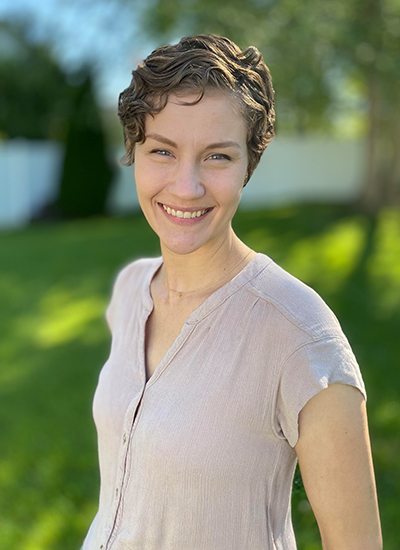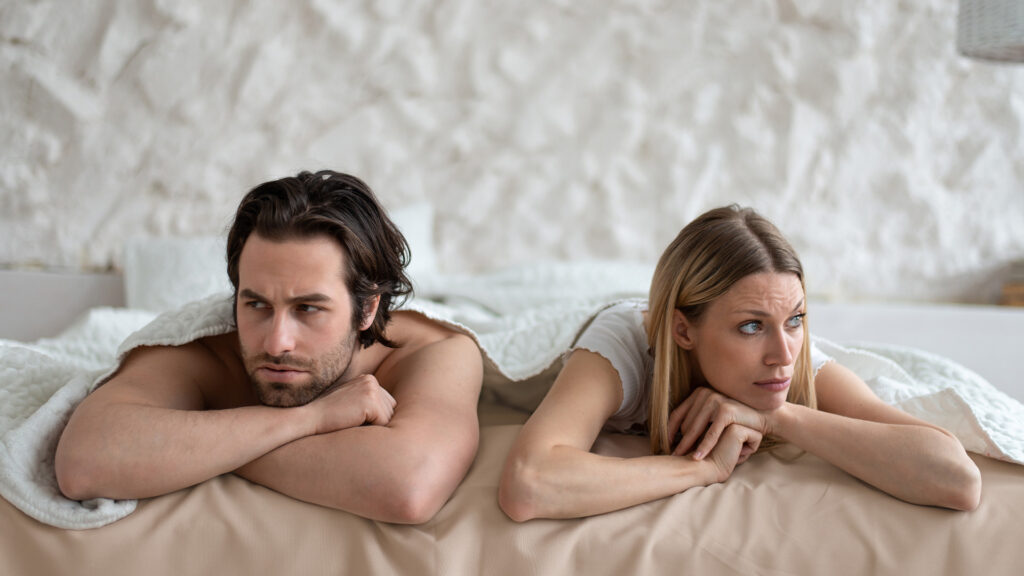
Many a marriage joke has emerged from the tug-of-war over a home’s thermostat setting. A recent Gallup poll survey says women grumble about being too cold or hot while they sleep much more than men.
Eighteen percent of women reported feeling too hot when trying to sleep “most of the time” compared to ten percent of men. The gap was a little smaller between men and women who reported being too cold for sleep. But these results suggest temperature disrupts sleep for women more than men.
“There could be several reasons for this,” Dr. Chester Wu, MD, sleep medicine physician in Houston, TX tells Sleepopolis, including hormonal changes, pregnancy, insomnia, stress, and anxiety. Let’s have a look at what the experts say about women, men, and sleep.
Why Do You Get Hot or Cold During Sleep?
People born female have opposing elements trying to run the show. In general, women are smaller, and can’t hold heat as well. Group that with a slower metabolism and fluctuating hormones, and women can feel freezing cold one minute, and boiling the next.
Women Have a Slower Metabolism
Women have slower metabolisms than men, and so can have a harder time creating heat when they need to. One study found women start shivering at a much higher temperature than men under the same conditions.
You Can Blame Your Hormones… Again
The fight over your thermostat also takes place at a microscopic level: between estrogen and progesterone. Estrogen cools you down, while progesterone tries to heat you up.
“Body temperature tends to increase after ovulation and remain elevated until the start of the next menstrual cycle. This could make women more likely to feel hot during sleep,” says Wu, who adds menopause can also cause hot flashes when you’re trying to snooze.
Other Gender-Based Sleep Differences
Temperature doesn’t make up the only disparity between male and female sleep quantity, quality, or needs.
Women May Need More Sleep than Men
Some research suggests women sleep more than men, but Wu explains these results are inconclusive. “What we do know from research so far is that women — for the many reasons described [here] — may very well need more time in bed to get enough sleep,” Wu says.
One theory claims women are at higher risk for problems with their circadian rhythm: an internal clock that tells your body when it’s time to wake up and time to sleep. If a woman’s circadian rhythm gets out of sync, their sleep can suffer.
Pregnancy Can Keep You Up
The first and third pregnancy trimesters come with plenty of joy and excitement, but also an abundance of sleep interruptions. Nausea, all-night-peeing, anxiety, and discomfort can keep you up, wake you up, and generally steal a lot of snoozing.
Sleep Apnea May Grow More Common in Menopause
As menopause approaches, female hormones start to dip. Overall, sleep apnea is more common in men, Wu says. But a recent study found that dropping estrogen and progesterone levels correlated to a higher risk of developing sleep apnea.
Sleep apnea can wake you throughout the night to gasp for breath, disrupting sleep.
Women Are at Higher Risk for Mental Health
In another poll managed by the National Sleep Foundation (NSF), women were found to be at a higher risk for anxiety and depression. These mental health conditions can both arise from and cause sleep disruption.
“Women are more likely to have their sleep affected by stress and anxiety…,” Wu says. “This can lead to difficulties falling asleep or staying asleep.”
Sleep Stages Differ
Women spend longer than men in slow-wave sleep, which is the deepest sleep stage. This stage of sleep allows your body to repair tissues, form new bone, build muscle, and enhance your immune system.
Restless Leg Syndrome Is More Common In Women
Restless leg syndrome causes an irresistible urge to move the legs. This condition is more common in women, says Wu, and “It can disrupt sleep and lead to daytime fatigue.”
Insomnia Hits Women Harder
“Women are more likely to experience insomnia than men,” says Wu. “This could be due to hormonal changes, stress, or mood disorders, which are more common in women.”
How to Get Better Sleep
No matter what sleep hurdles you must jump, you can take steps to get yourself a better night’s rest. If you need a warmer or cooler sleeping environment, you can adjust your pajamas and comforter weight and fabric, as well as room temperature.
Sleep hygiene plays a huge role in how well you sleep. Here are some ways to boost your snoozing:
- Avoid naps, especially too close to bedtime.
- Eat only light snacks before bed
- Exercise during the day.
- Hold off on alcohol and caffeine before bed.
- Keep regular sleep and wake times.
- Make your sleeping area dark, quiet, and cool.
- Save your bed for sleep and sex.
- Stay away from blue light from electronics in the hours before sleep.
If you can’t fall asleep after 10 minutes, get out of bed. Do something quiet, like reading, and try again when you feel sleepy. Concerned you may have a sleep issue that needs addressing? Talk it over with your healthcare provider. They can help you figure out what’s going on and what you can do about it.
Sweaty or shivering slumber doesn’t have to be your lot in life. Whether you need more blankets, turn on a fan, or even try a sleep divorce, you can work towards giving yourself the gift of good sleep.
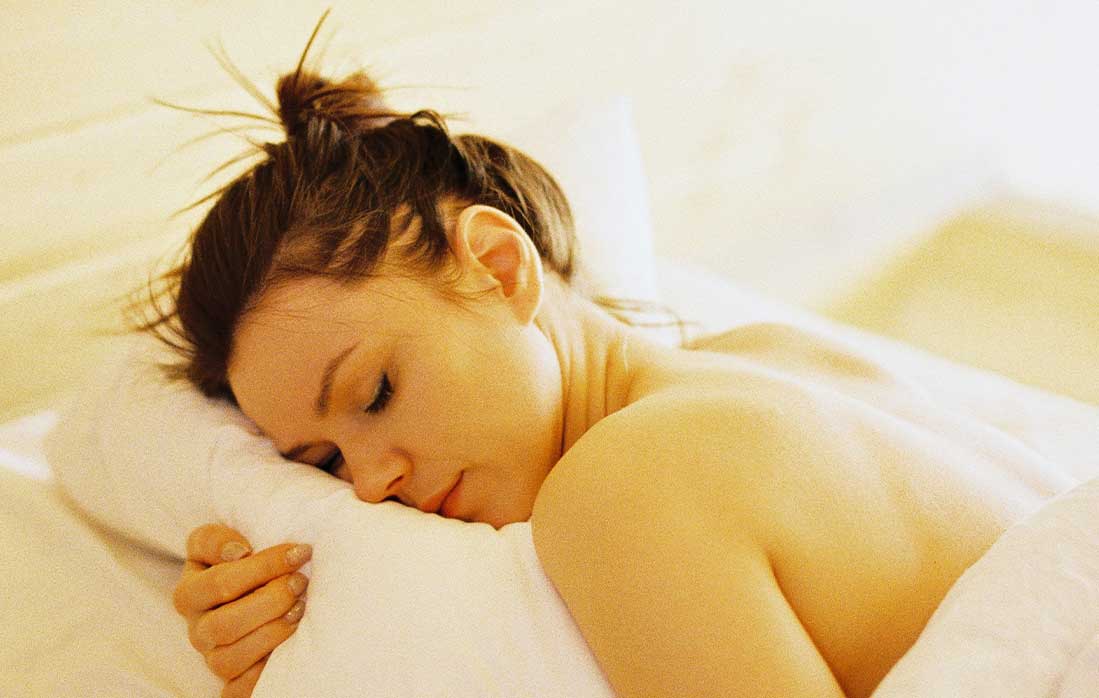
Is Sleeping Naked During a Heat Wave Really a Good Idea?
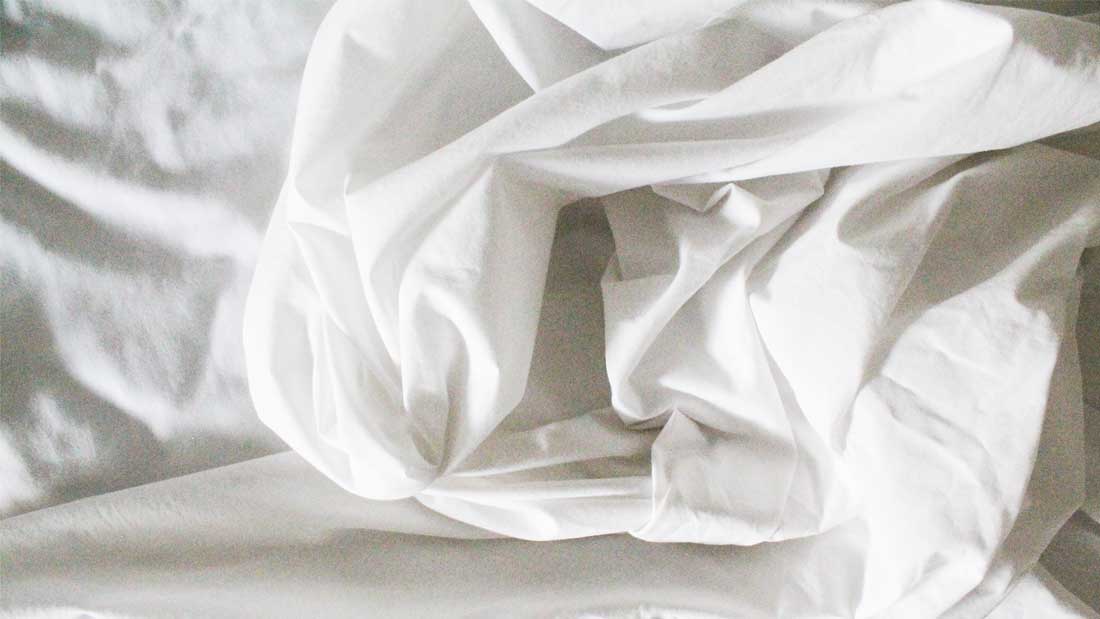
Bed Sheets Ultimate Guide — What Are the Best Types, Materials, and Weaves?
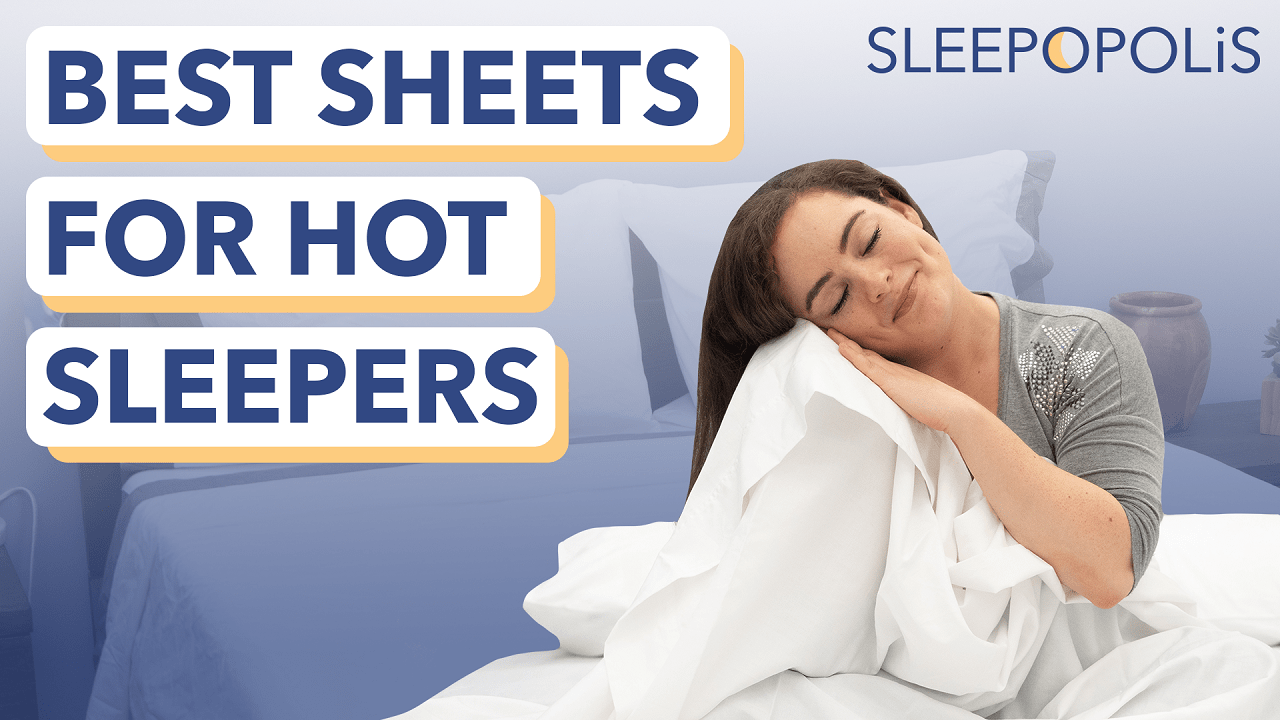
Best Cooling Sheets for Hot Sleepers

I Spent $1,000 on a Water-Cooled Mattress Pad When I Moved to the Tropics — Here’s How It Performed
Sources
Wu, Chester. Author interview. July 2024.
Witters D. Sleep Temperature Linked to Overall Sleep Quality, Wellbeing. Gallup.com. Published June 21, 2024. Accessed July 5, 2024. https://news.gallup.com/poll/506201/sleep-temperature-linked-overall-sleep-quality-wellbeing.aspx
Yanovich R, Ketko I, Charkoudian N. Sex Differences in Human Thermoregulation: Relevance for 2020 and Beyond. Physiology. 2020;(3):177-184. doi:10.1152/physiol.00035.2019
Kaikaew K, van den Beukel JC, Neggers SJCMM, Themmen APN, Visser JA, Grefhorst A. Sex difference in cold perception and shivering onset upon gradual cold exposure. Journal of Thermal Biology. Published online October 2018:137-144. doi:10.1016/j.jtherbio.2018.08.016
Greenfield AM, Charkoudian N, Alba BK. Influences of ovarian hormones on physiological responses to cold in women. Temperature. 2021;(1):23-45. doi:10.1080/23328940.2021.1953688
Zhang C, Tait C, Minacapelli CD, et al. The Role of Race, Sex, and Age in Circadian Disruption and Metabolic Disorders. Gastro Hep Advances. 2022;(3):471-479. doi:10.1016/j.gastha.2022.02.015
Kováčová K, Stebelová K. Sleep Characteristics According to Gender and Age Measured by Wrist Actigraphy. International Journal of Environmental Research and Public Health. 2021;(24):13213. doi:10.3390/ijerph182413213
Patel AK. Physiology, Sleep Stages – StatPearls – NCBI Bookshelf. National Center for Biotechnology Information. Accessed July 5, 2024. https://www.ncbi.nlm.nih.gov/books/NBK526132/
Sedov ID, Anderson NJ, Dhillon AK, Tomfohr‐Madsen LM. Insomnia symptoms during pregnancy: A meta‐analysis. Journal of Sleep Research. 2020;(1). doi:10.1111/jsr.13207
Bonsignore MR, Saaresranta T, Riha RL. Sex differences in obstructive sleep apnoea. European Respiratory Review. 2019;(154):190030. doi:10.1183/16000617.0030-2019
Sigurðardóttir ES, Gislason T, Benediktsdottir B, et al. Female sex hormones and symptoms of obstructive sleep apnea in European women of a population-based cohort. Wang H, ed. PLOS ONE. 2022;(6):e0269569. doi:10.1371/journal.pone.0269569
Sleep Apnea – What Is Sleep Apnea? | NHLBI, NIH. NHLBI, NIH. Accessed July 5, 2024. https://www.nhlbi.nih.gov/health/sleep-apnea
National Sleep Foundation’s 2024 Sleep in America Poll. The National Sleep Foundation. Published March 9, 2024. Accessed July 5, 2024. https://www.thensf.org/wp-content/uploads/2023/03/NSF-2023-Sleep-in-America-Poll-Report.pdf
Steward K. Physiology, Ovulation And Basal Body Temperature – StatPearls – NCBI Bookshelf. National Center for Biotechnology Information. Accessed July 5, 2024. https://www.ncbi.nlm.nih.gov/books/NBK546686/
Restless Legs Syndrome | National Institute of Neurological Disorders and Stroke. National Institute of Neurological Disorders and Stroke. Accessed July 5, 2024. https://www.ninds.nih.gov/health-information/disorders/restless-legs-syndrome
Insomnia | Office on Women’s Health. Home | Office on Women’s Health. Accessed July 5, 2024. https://www.womenshealth.gov/a-z-topics/insomnia
A Good Night’s Sleep | National Institute on Aging. National Institute on Aging. Accessed July 5, 2024. https://www.nia.nih.gov/health/good-nights-sleep#



























